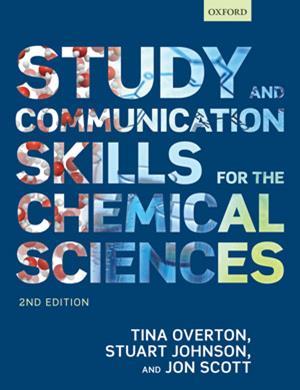How to learn

Study and communication skills for the chemical sciences (2nd edn)
T Overton, S Johnson, J Scott
Oxford University Press
2015 | 288pp | £23.99 (PB)
ISBN 9780198708698
http://amzn.to/1P1rz35
The first edition of this book was packed full of valuable hints and tips specifically aimed at helping students succeed in undergraduate study at university. It not only covered getting the most out of the various taught sessions, but also a wealth of information on writing and presenting science. I’ve often recommended this book to students who were struggling with general, non-subject-specific study skills in the past, or those who have needed to brush up on their writing style.
This update adds even more. Much of the sound advice from the previous incarnation still exists, but there has been a logical restructure to some chapters. There are now even more opportunities for students to test their skills with the ‘Try this’ case studies, allowing the reader to work through challenging scenarios. The use of workshops in university education, absent from the original, is now included alongside tutorials. Both methods are used heavily in university teaching: the differences between the two are acknowledged and students following the advice given will really make best use of these learning opportunities.
The most extensively revised section though, and perhaps most pertinent in the current academic climate, is on employability. The chapter ‘Making yourself employable’ focuses on identifying and gathering evidence of the soft skills a degree in the chemical sciences provides, and is illustrated with excellent examples that students can relate to. The information provided is general enough that it doesn’t just focus on careers in the chemical sciences, and in reality is sound advice for graduate jobseekers from any discipline.
In all, the updates have only added to what was already an incredibly helpful book. While it doesn’t teach any new subject-specific material, I think this book should be recommended reading for all chemistry undergraduates. It doesn’t teach any chemistry, but it could just teach you how to learn it!









No comments yet